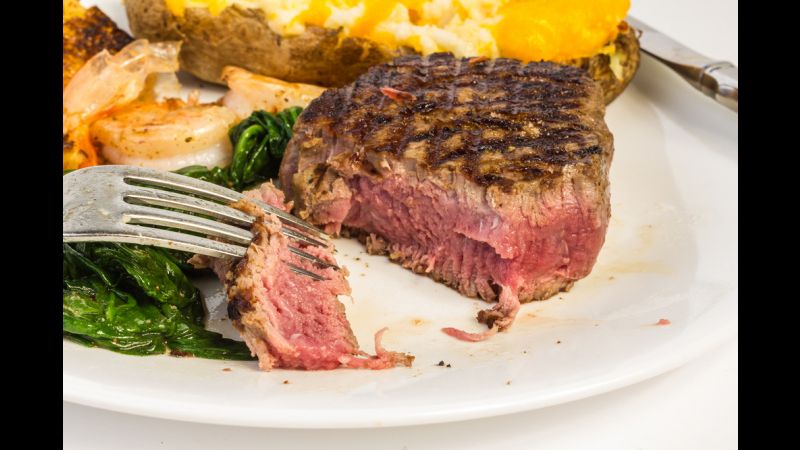The way you eat impacts so many aspects of your health. A nutritious diet is one of the keys to a long and healthy life. On the other hand, your diet may also be the culprit behind nagging chronic conditions. Gout is one of these conditions. This painful form of arthritis, which attacks the joints and extremities, is the result of an excess of uric acid in the body. This causes crystals to form on the joints, leading to swelling, tenderness and general discomfort. According to Medical News Today, gout affects roughly 6% of American men and 2% of American women, and these numbers may be on the rise. The good news, though, is that a proper diet can go a long way in helping to manage the condition. Eating the right foods and avoiding the wrong ones is a big part of the battle when it comes to gout.
The Worst Foods
One of the main causes of gout is a diet heavy in purines. According to The World’s Healthiest Foods, purines are naturally occurring organic compounds that are present in the human body as well as in nearly every food we eat. Certain foods are especially heavy in the types of purines that may lead to uric acid buildup.
Meat: Often, foods that are high in protein also have a high concentration of purine. This can include certain meats, especially those of the organ variety such as liver and kidney. According to the Mayo Clinic, people attempting to manage the condition should make a point of limiting their intake of red meats or poultry to no more than 4 to 6 ounces per day.
Seafood: The same rules apply to seafood, which is both high in proteins and purines. In fact, one study conducted by the New England Journal of Medicine reports that participants who maintained meat-heavy diets were 40% more likely to develop gout whereas participants who ate seafood-heavy diets were 50% more likely to have gout. In addition to limiting your intake, avoid specific fish that are especially high-risk such as mackerel, herring, sardines and mussels. Other fish to avoid include smelt, anchovies, salmon and trout.
Alcohol: The Mayo Clinic also warns that the consumption of alcohol can interfere with the elimination of uric acid. Beer in particular, and most anything with heavy yeast content, increases the risk of an arthritic attack. The Mayo Clinic notes that the limited intake of wine is acceptable.
Junk Food: It should go without saying that it is healthier to avoid certain junk foods. This is doubly true when it comes to managing gout. Saturated fats not only lead to obesity, which is known to contribute to gout, but also directly prevent the elimination of uric acid. In addition, foods with high-fructose corn syrup can actually lead the body to create excess uric acid.
The Best Foods
The usual rule of thumb is that foods which are seen as all-around healthier are also frequently healthier for gout sufferers.
Complex Carbohydrates: The best way to get the energy you need while maintaining a healthy diet is to consume the right complex carbohydrates. This list generally includes most fruits, whole grains and vegetables. Contrary to meat or seafood, some vegetables that are high in purine such as peas, asparagus or cauliflower ill not raise your risk of an attack.
Non-Fat Dairy: In fact, certain non-fat dairy options that are high in purines are actually recommended to gout sufferers.This includes heart healthy options such as yogurt and mozzarella cheese.
Fluids: Drink plenty of fluids to help manage your condition. A steady intake of water—between 8 and 12 glasses a day according the Mayo Clinic—can help improve the body’s elimination of excess uric acid. Good news for coffee drinkers; between 4 to 6 cups a day can reduce the risk of gout for men.
You’ve probably noticed that quite a few of the dietary restrictions associated with gout are also associated with heart disease. In other words, managing your gout through proper diet is not all that different from keeping a healthy diet all around.

